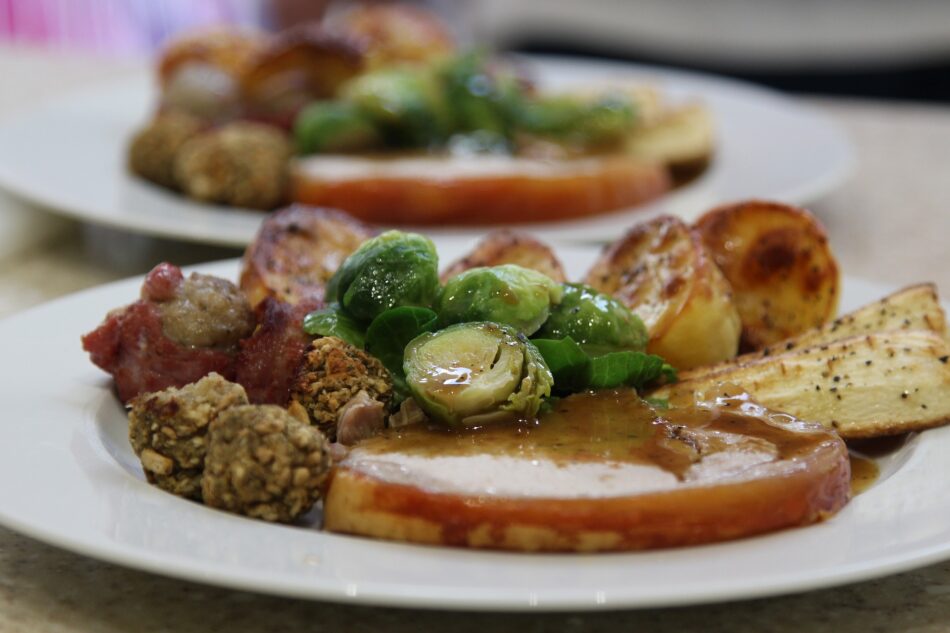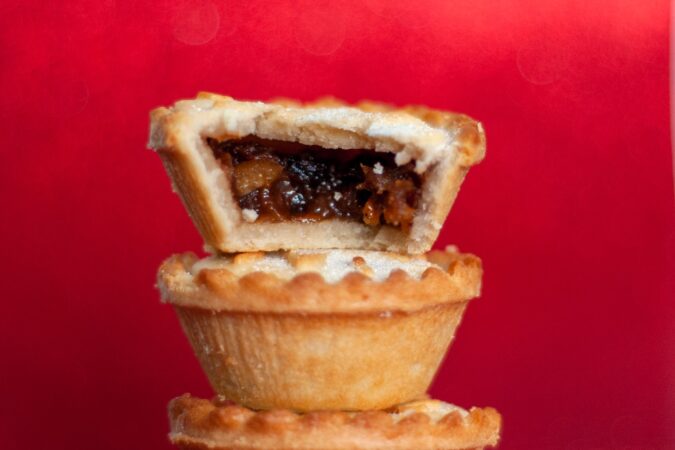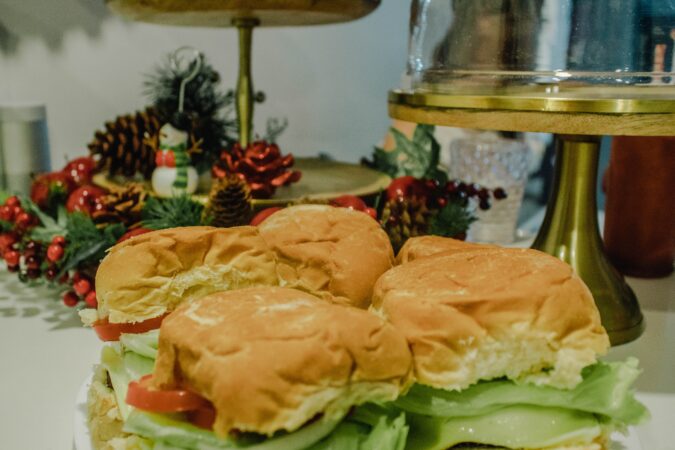
How to Reduce Food Waste at Christmas
Christmas food waste is a growing problem in the UK, as businesses and homes send millions of tonnes of food to landfill during the holiday season. Here it rots and releases methane, contributing to global warming, when it could have been eaten or disposed of sustainably. Before overindulging this winter, plan carefully to reduce the festive food waste produced.
There are plenty of ways you can still tuck into a filling festive feast without adding to landfill levels. Whether it’s your turn to host Christmas dinner this year or you’re in charge of catering for the work Christmas party, the following facts and tips can help cut your Christmas food waste this year.
Discover how to reduce food waste at Christmas in this guide.
Christmas food facts
A report by the Bank of England found UK households spend 20% more on food and 38% more on alcohol in December compared to other months. On average a Christmas dinner in the UK costs £27.49 – but this figure varies depending on where you shop, the number of diners, and the latest level of inflation.
According to YouGov, 54% of Britons have turkey as the main meat for Christmas dinner. It’s not the most popular item though – that goes to roast potatoes, which 88% of people have on their plate. 80% of people have gravy and 71% have carrots and stuffing – more than Brussels sprouts (66%) and pigs in blankets (65%).
For some further facts about Christmas food, we’ve answered your common queries:
- How many turkeys are eaten at Christmas in the UK? 10 million turkeys are eaten in the UK every Christmas.
- How many Christmas puddings are eaten each year? 25 million Christmas puddings are eaten each year around Christmas in the UK.
- How many mince pies are eaten in the UK? Around 800 million mince pies are eaten in the UK over the Christmas season.
- How many Brussels sprouts are sold at Christmas? About 750 million individual Brussels sprouts are sold over Christmas in the UK – 25% of annual sprout sales are in the two weeks before Christmas.
- How much chocolate is eaten in the UK at Christmas? It’s estimated that we chomp through 208 million boxes of chocolates in the UK on Christmas Day alone.
Christmas food waste facts
The increased spending on certain food and drinks over the festive period is good for retailers. However, it sadly results in 270,000 tons of Christmas food waste being disposed of despite being edible – that’s around seven million bins full of waste food. And it’s not the only shocking Christmas food waste statistic.
Around four million Christmas dinners end up in the bin in the UK every year. It’s not just households responsible for these worrying Christmas food waste statistics – supermarkets, restaurants, pubs, and hotels all generate food waste across the festive season.
Some key Christmas food waste stats include:
- The equivalent of two million turkeys go to waste at Christmas every year.
- Five million Christmas puddings are uneaten and binned in the UK.
- Around 5 million mince pies are wasted over Christmas.
- Love them or hate them, it’s still a shame that 17 million Brussels sprouts go to waste at Christmas.
- Britons scrape off 11 million roast potatoes from their Christmas dinner plates and into the bin.
- Think about the trimmings, as about 12 million carrots get wasted at Christmas.
- Seven million pigs in blankets are thrown away each year at Christmas.

Ways to reduce your
Christmas food waste
Avoid adding to the above Christmas food waste stats and facts by focusing on your preparation and finding ways to responsibly use or dispose of leftovers. With the following tips you can easily reduce food waste this Christmas whether hosting Christmas dinner at home or throwing a festive lunch and/or party at work.
Plan and prepare
your Christmas food
Carefully planning all the food you intend to serve over Christmas is the best way to reduce both waste and costs. It’s easy to get excited when you see shelves stocked with packets of pigs in blankets, Christmas cakes, mince pies, and more. That leads to temptation and buying more than you’ll eat, resulting in lots of Christmas food waste.
According to Which? 45% of Brits admit to overbuying Christmas food and having leftovers, compared to just 14% claiming they run out of food and drinks. Spend a bit of time planning what you’ll realistically eat over the festive period – whether it’s for an office Christmas party, Christmas dinner at home, or a full week’s shop.
- Write a list – work out all the dishes, baking, and snacks you plan to make or buy, then write down all the ingredients and the amounts you need. Ensure you stick to your list when it’s time to go food shopping to avoid overbuying.
- Check your cupboards – once you’ve got a list of the food, drinks, and ingredients you need, check your cupboards. Mark off anything on your list that you’ve already got to avoid doubling up.
- Make enough room – proper storage space is vital to prevent food going off fast and being wasted, especially when you have more and different foodstuffs stocked around Christmas. Make sure there’s room in your fridge for meat and fresh food, in the freezer for leftovers, and think about what you can leave outside, in your cellar, or a dark cupboard to keep it cool (like potatoes, other veg, and beer).
- Shop loose – food packaging waste at Christmas is another problem. Try and shop locally at greengrocers, butchers, bakers, or bulk buy where possible. These places are less likely to use as much packaging when buying your Christmas food.
- Deliberate over deals – supermarkets advertise lots of great deals on food and drink at Christmas. But stick to your list and avoid any temptations if it’ll likely leave you with lots of leftovers. Consider whether you have space for those ten boxes of reduced price mince pies, or how long five packs of pigs in blankets will last before adding them to your trolley.
- Proper portion control – piling plates high can create plenty of Christmas food waste. Dish out an average portion size or get guests to serve themselves. This way any food leftover is more likely to be in an edible condition rather than food scraps on a plate.

What to do with
Christmas food waste
No matter how carefully you prepare meals, baking, and snacks at Christmas, you can still end up with some leftovers. From turkey and trimmings to a never-ending mountain of mince pies, whatever you do – don’t throw away any food with your general waste. Consider these sustainable alternatives for what to do with your Christmas food waste:
- Donate festive food – any tinned or packaged Christmas foods such as biscuits, cakes, and mince pies are great to donate to a local foodbank. You could also donate leftover cooked food such as turkey, potatoes, and vegetables to an animal shelter for feed.
- Freeze leftovers – you can freeze most Christmas leftovers including turkey and vegetables if you don’t plan to use them soon. Ensure they’re thoroughly cool before placing them in separate airtight bags or containers and popping in your freezer.
- Follow Christmas food waste recipes – there are countless recipes for Christmas food waste available. From classics such as turkey sandwiches, curries, and bubble and squeak, to risottos, vegetable soups and more, get creative with your leftovers.
- Compost food scraps – if you’ve got a compost pile in the garden and only a few Christmas food scraps left, add them to it. Fruit, vegetables, peelings, and even the turkey carcass can be composted (though it’s advised you cut it up first to speed up decomposition).
- Use a food waste bin – small food scraps can go in your company’s general waste bin, but more substantial amounts of Christmas food waste should be stored in a dedicated food waste bin. This is then sent for anaerobic digestion and converted into renewable energy, rather than going to landfill. Arrange delivery of free food waste bins with Business Waste – just pay for collection.
Find more ways to minimise waste in your business or home this festive season with our guides to reducing Christmas waste.
Get a free quote for Christmas food waste disposal
Get a fast FREE quote for your Christmas food waste disposal
- Free quote within 1 hr
- Any type of food waste
- FREE bins and delivery
- We cover all of the UK